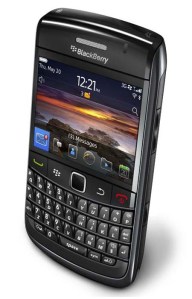
It looks like Canada’s Research in Motion may finally be headed for a showdown in India: according to The Economic Times the Indian government has given RIM a March 31 deadline to hand over encryption keys to its corporate BlackBerry email service.
RIM has previously worked with the Indian government to provide real-time access to its consumer-oriented BlackBerry Messenger instant-messaging service, but has steadily maintained that there is no technological solution for tapping into its corporate email services. The stalemate has been dragging out for the better part of a year, with India insisting it will ban BlackBerry service unless government agencies can monitor communications on the service.
India is demanding access to encrypted BlackBerry communications out of fear they could be used by terrorists or militants to coordinate attacks. RIM has faced similar demands from the likes of Saudi Arabia and the United Arab Emirates. RIM was able to come to unspecified arrangements with those countries that reportedly involved deploying BlackBerry servers in those nations, rather than relaying BlackBerry communications to servers in the United Kingdom and North America. If true, that would enable local governments to monitor connections in and out of the service without the use of complicated (and time-consuming) international warrants.
Consumer rights and privacy advocates have warned that government access to communications could easily be abused to suppress free speech or other content a government deems objectionable.
RIM has maintained it is working with the Indian government on solutions to insure BlackBerry service remains operational in the country. Although the type of encryption used by RIM in the corporate email service doesn’t have a back door that can be used by RIM or mobile operators to decrypt message traffic, possible solutions include the Indian government requiring users to hand over their own encryption keys in order to continue using the service.
RIM is not the only company facing access requirements from the Indian government: Cisco, Skype, and Nokia have all landed in the Indian government’s crosshairs too. According to to the Wall Street Journal, Finland’s Nokia had been happy to comply, and is already testing systems enabling the Indian government to monitor consumer email.

